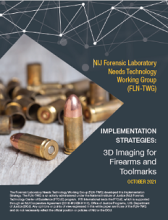Forensic sciences
Estimating the number of contributors to a DNA profile using decision trees
THF Co-solvent Pretreatment Prevents Lignin Redeposition from Interfering with Enzymes Yielding Prolonged Cellulase Activity
Implementing NAGPRA Connecting Medical Examiner and Coroner Offices to Tribal Partners
This project is designed to connect tribal partners to ME/C offices to facilitate successful disposition protocols for non-forensically significant Native American remains that are compliant with the Native American Graves Protection and Repatriation Act of 1990 (NAGPRA).
See the YouTube Terms of Service and Google Privacy Policy



